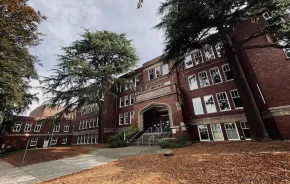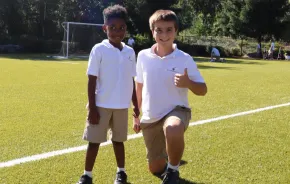
Since the snow began falling on the afternoon of Super Bowl Sunday, my kids have not had one full day of school in over a week. With snow still coming down, and snow in the forecast all week, I’m fairly certain they won’t have school this week either. Or next week, as mid-winter break is planned for the week beginning with the Presidents' Day holiday on Feb. 18. In short, this means my kids will likely be out of school for close to the entire month of February. And it remains unclear for districts around the Sound whether students will have to make up all the rapidly accruing snow days.
The snow has caused a lot of extra work and stress for my husband and I over the past week, and the days off for our kids are a significant part of that stress. We both have day jobs that are hard enough without the constant interruption of bored, stir-crazy kids. And even though it's been stressful and hard, we know we are among the lucky few. We have two all-wheel-drive vehicles, I (already) work from home and we can access the resources we need to keep our kids (fairly) entertained — even learning — during these extended school closures. Not all families are so fortunate.
For those living in poverty, school closures hit especially hard. Schools and libraries are among the first places people go to find shelter from extreme weather conditions. Yet while schools have been shuttered, many local libraries and community centers are closed, too. Few local shelters that serve the most vulnerable Puget Sound-area families are open during the day. Some 15,000 students in Seattle Public Schools alone rely on the free and reduced lunch program for meals. This means these kids may go hungry during school closures.
Academically, kids suffer, too. Struggling students who access special needs services are forgoing needed interventions during this break from school. These are services and supports that students can ill afford to be missing. Research suggests that even short school breaks expand the already ridiculously high achievement gap. Plus, there’s the issue of child care. Working parents may not have accommodating employers, and service industry employees often don’t get snow days. Some parents face paying double for child care; paying for needed back-up care while continuing to pay for their regular day care while it's closed.
I do not want to minimize area districts' attempts to err on the side of caution. I’ve witnessed more than a few accidents in the past several days and no educational goal is worth putting kids — or teachers — in harm's way. With snow and black ice on the road and few snow-savvy drivers, it's the perfect recipe for unsafe road conditions. There aren’t enough resources currently to plow and de-ice all area neighborhoods (mine included).
But, there are places all around the nation and the world that get much more snow than we do. These places find ways to keep kids in school and I know we can, too. Given how little snow we get in a typical year, the lack of preparation on the part of local officials has been understandable in the past, but we can't use that excuse any longer. As the effects of climate change impact our weather and our world, extreme weather events are becoming the norm. It’s more important than ever that our area leaders adequately prepare for inclement weather in the future. I believe that if our community works together, it's possible. Unfortunately, this problem isn't going away anytime soon and canceling school indefinitely is not an acceptable solution for families.











